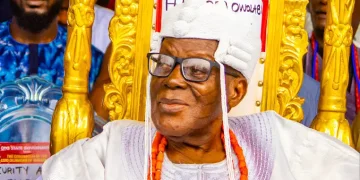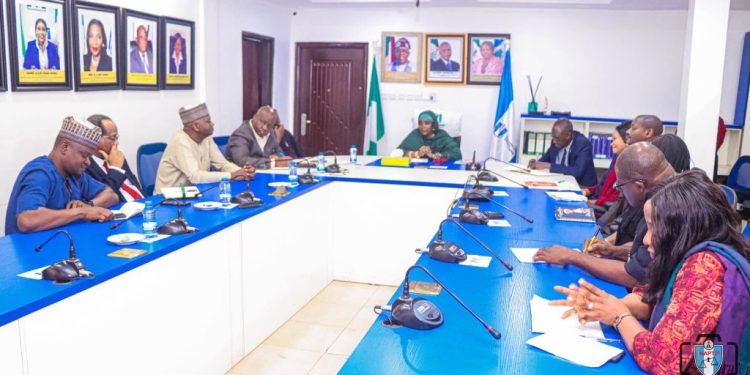The National Agency for the Prohibition of Trafficking in Persons (NAPTIP) has entered into a strategic partnership with the Nigerian Association of Road Transport Owners (NARTO) to tackle human trafficking through the country’s road transport network.
The collaboration was sealed during a courtesy visit by NARTO’s leadership, led by its National President, Alhaji Yusuf Lawal Othman, to the Director General of NAPTIP, Binta Adamu Bello, at the agency’s headquarters in Abuja.
NARTO, which represents commercial vehicle owners involved in passenger transport, petroleum distribution, and cargo haulage across Nigeria, pledged its commitment to supporting NAPTIP in disrupting trafficking operations along key transport routes.
Alhaji Othman expressed deep concern over the increasing use of the transport system for trafficking and other criminal activities, citing intelligence and field reports linking the sector to illicit movements.
“We are seeing an alarming intersection of trafficking and other crimes within our transport corridors. NARTO is ready to be part of the solution through active collaboration with NAPTIP,” he said.
He proposed joint efforts in intelligence sharing, coordinated field operations, awareness campaigns, and sensitization of transport workers at motor parks and highways.
NAPTIP’s Director General, Binta Adamu Bello, described the partnership as “critical and long overdue,” emphasizing its potential to disrupt trafficking networks exploiting road transport.
“With NARTO’s nationwide coverage and logistical strength, this partnership enhances our capacity to prevent and detect trafficking activities,” she stated.
Bello reaffirmed NAPTIP’s commitment to a strong and result-oriented alliance, noting that the collaboration will include nationwide awareness drives, staff training for transport operators, and quick-response mechanisms to report and intercept trafficking cases.
The initiative aligns with NAPTIP’s broader strategy of multi-sectoral engagement, bringing together stakeholders from civil society, transport unions, traditional leaders, and the private sector in the fight against human trafficking.




































